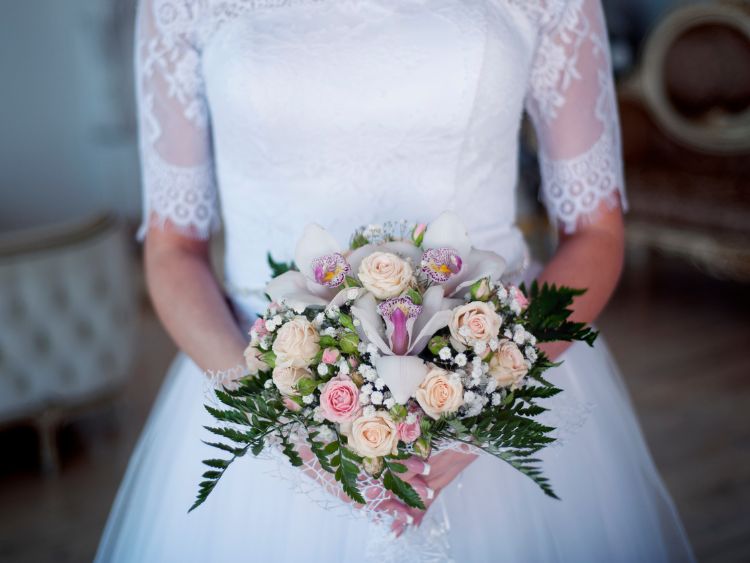Understanding Wedding Dress Codes
Ever received a wedding invite and had no idea what the dress code meant? Don’t worry—you’re not alone! Wedding dress codes can be confusing, especially with the range of terms like “black-tie,” “cocktail,” and “beach formal.” In this guide, we’ll break down popular dress codes, offer style tips for each one, and help you make a fabulous impression without upstaging the bride and groom.
1. What is a Wedding Dress Code, and Why Does It Matter?
Wedding dress codes give guests an idea of what to wear, ensuring the attire matches the event’s formality and setting. Here’s why they’re essential:
- Consistency: Helps guests match the event’s vibe.
- Photos: Creates cohesive-looking photos.
- Respect: Shows respect for the couple’s vision for their big day.
By following the dress code, you’re contributing to the wedding’s atmosphere, and who doesn’t want to look stylish and appropriate?
2. Decoding Common Wedding Dress Codes
2.1 Black Tie
This is the dressiest attire for most weddings, often reserved for evening events. Here’s what to wear:
- For Men: A tuxedo, bow tie, and formal shoes.
- For Women: A full-length evening gown or an elegant cocktail dress. Stick with darker colors or subtle tones.
Tip: Think of red carpet glam—tasteful and polished.
2.2 Black Tie Optional
Slightly less formal than black tie, this dress code gives guests some flexibility:
- For Men: A tuxedo is optional, but a dark suit with a tie works just fine.
- For Women: A cocktail dress, long dress, or dressy separates.
Tip: If in doubt, it’s better to lean on the formal side.
2.3 Formal or Evening Attire
A step down from black tie but still quite formal. Suitable for evening or upscale weddings.
- For Men: Dark suit and tie.
- For Women: Long dress, cocktail dress, or elegant separates.
Tip: Choose sophisticated styles—no casual wear here!
3. Semi-Formal or Cocktail Attire
Common for evening weddings, cocktail attire allows for a balance of formality and personality.
- For Men: Dark or medium-colored suit and tie.
- For Women: Knee-length cocktail dresses, midi dresses, or elegant jumpsuits.
Tip: Choose semi-formal styles that are polished but don’t overshadow the wedding party.
3.1 Casual or Daytime Wedding Attire
Casual dress codes are relaxed and more common for outdoor or daytime weddings. But keep it classy—no jeans or flip-flops!
- For Men: Light-colored suit, sport coat, or dress pants with a collared shirt.
- For Women: Sundress, skirt with a blouse, or a nice jumpsuit.
Tip: Think of what you’d wear to a garden party.
3.2 Beach Formal
For a beach wedding, go for outfits that balance formality with comfort.
- For Men: Light suit (think linen), no tie required.
- For Women: Light, flowing dresses or beach-friendly jumpsuits.
Tip: Avoid high heels; opt for wedges or sandals for sandy terrain.
4. What to Avoid When Following Wedding Dress Codes
- White: Avoid anything close to white unless the invitation specifically states otherwise.
- Jeans: Rarely, if ever, appropriate for weddings.
- Sneakers: Even for casual weddings, they can be too informal.
- Distracting Prints: Avoid anything that might steal attention from the couple.
5. Navigating Unusual Dress Codes
Sometimes, couples get creative with dress codes, leading to terms like “Festive Attire” or “Dress to Impress.” Here’s a quick rundown:
- Festive Attire: Bright, celebratory colors or themed accessories.
- Dress to Impress: A polished outfit that fits the formality of the event.
- Themed Attire: Pay attention to any specific themes, like “1920s Glam” or “Boho Chic.”
6. Accessories and Add-Ons: Perfecting Your Look
- Hats: Great for outdoor daytime weddings but avoid anything too bold.
- Jewelry: Understated is usually best, though formal events call for something elegant.
- Shoes: Comfort is key; try to match the formality of the outfit and venue.
FAQs About Wedding Dress Codes
Q1: What should I wear if the invitation says ‘optional black tie’?
Opt for a dark suit if you don’t have a tux. Women can wear a cocktail dress or formal separates.
Q2: Can I wear black to a wedding?
Absolutely! Black is considered chic for formal weddings, though lighter colors are better for daytime.
Q3: What’s the difference between semi-formal and cocktail attire?
They’re often used interchangeably but generally, cocktail attire leans more stylish, while semi-formal is slightly more relaxed.
Q4: Is it okay to ask the couple about the dress code?
Yes! Most couples appreciate when guests want to ensure they dress appropriately for the big day.
Summary: Finding the Perfect Fit with Wedding Dress Codes
Decoding wedding dress codes doesn’t have to be a headache! With this guide, you can confidently pick an outfit that’s not only appropriate but also stylish. From black tie to beach formal, dressing according to the code ensures you look great while respecting the couple’s wishes. Remember, it’s all about striking the right balance between personal style and event formality.
Authoritative Links
- https://www.brides.com/wedding-dress-codes-4843472
- https://www.theknot.com/content/wedding-guest-attire-cheat-sheet
- https://www.marthastewart.com/7922081/wedding-guest-attire
